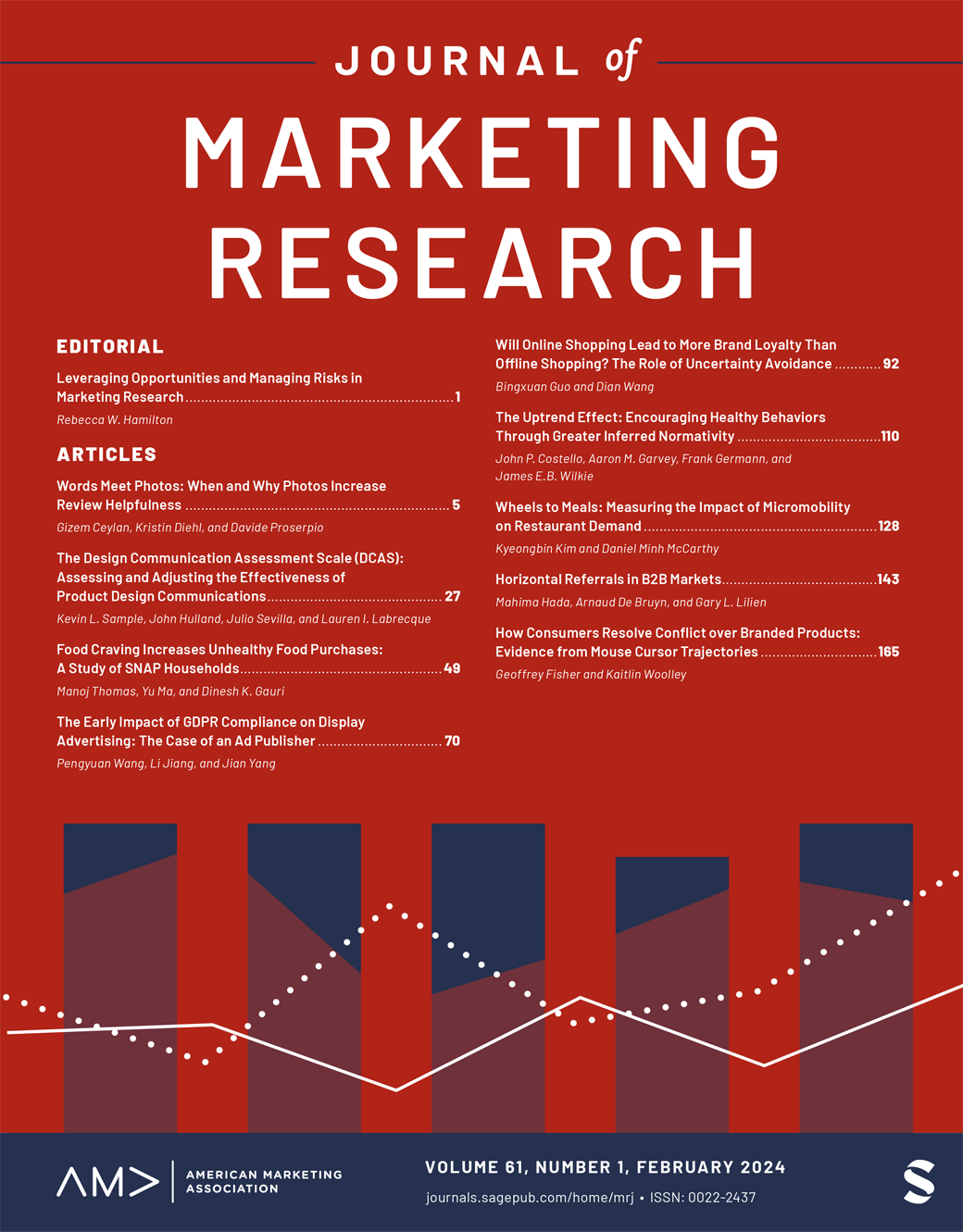EXPRESS: Sharing to Persuade: the Role of Donor- versus Charity-Focused WOM
IF 5
1区 管理学
Q1 BUSINESS
引用次数: 0
Abstract
Charitable organizations are increasingly soliciting donors to engage in word-of-mouth (WOM) as a strategy to foster future contributions. While some organizations encourage donors to share WOM that focuses on their own donations (donor-focused WOM; e.g., “I just donated to the kids of @StJude. Join me in saving children’s lives.”), others prompt donors to share WOM that focuses on the organization itself (charity-focused WOM; e.g., “Smile Train gives children with clefts the #PowerOfASmile.”). Contrary to the common belief that people mostly want to talk about themselves, the current research demonstrates that donor-focused WOM backfires, such that donors are less likely to share donor- than charity-focused WOM. This effect is driven by their belief that donor-focused WOM is less altruistic and is therefore less efficacious in persuading others to contribute to the same cause. In addition to sharing, the type of WOM solicited exerts far-reaching impact, with donor-focused WOM attracting fewer new donors in comparison to charity-focused WOM. Together, the current research improves the understanding of WOM type, its effect, and the underlying processes.快讯分享以说服:以捐赠者为中心的 WOM 与以慈善为中心的 WOM 的作用
作为促进未来捐款的一种策略,慈善组织越来越多地邀请捐赠者参与口碑传播(WOM)。一些组织鼓励捐赠者分享以自己的捐赠为中心的 WOM(以捐赠者为中心的 WOM;例如,"我刚刚为 @StJude 的孩子们捐了款。与我一起拯救儿童的生命。"),其他一些组织则鼓励捐赠者分享以组织本身为中心的 WOM(以慈善为中心的 WOM;例如,"微笑列车为患有唇裂的儿童带来 #微笑的力量。")。人们普遍认为,人们大多愿意谈论自己,与此相反,目前的研究表明,以捐赠者为中心的 WOM 会适得其反,捐赠者分享以捐赠者为中心的 WOM 的可能性要低于分享以慈善为中心的 WOM 的可能性。造成这种效果的原因是,他们认为以捐赠者为中心的 WOM 不那么利他,因此在说服他人为同一事业做出贡献方面效果较差。除了分享之外,所征集的 WOM 类型也产生了深远的影响,与以慈善为重点的 WOM 相比,以捐赠者为重点的 WOM 吸引的新捐赠者更少。总之,目前的研究加深了人们对 WOM 类型、其影响和潜在过程的理解。
本文章由计算机程序翻译,如有差异,请以英文原文为准。
求助全文
约1分钟内获得全文
求助全文
来源期刊

Journal of Marketing Research
BUSINESS-
CiteScore
10.30
自引率
6.60%
发文量
79
期刊介绍:
JMR is written for those academics and practitioners of marketing research who need to be in the forefront of the profession and in possession of the industry"s cutting-edge information. JMR publishes articles representing the entire spectrum of research in marketing. The editorial content is peer-reviewed by an expert panel of leading academics. Articles address the concepts, methods, and applications of marketing research that present new techniques for solving marketing problems; contribute to marketing knowledge based on the use of experimental, descriptive, or analytical techniques; and review and comment on the developments and concepts in related fields that have a bearing on the research industry and its practices.
 求助内容:
求助内容: 应助结果提醒方式:
应助结果提醒方式:


